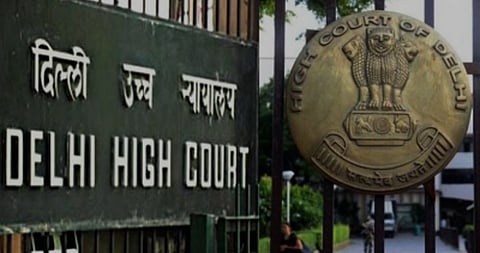

The Delhi High Court today, June 6, delivered its verdict in writ petitions questioning three questions in the Common Law Admission Test - Postgraduate (CLAT -PG) 2025 exam.
As per updates by LiveLaw.in, a division Bench comprising Chief Justice DK Upadhyaya and Justice Tushar Rao Gedela ruled that two of the three challenged questions would be included in the final evaluation, while one would remain excluded.
Key highlights
The court allowed challenges to two questions, directing the Consortium of National Law Universities (NLU Consortium) to revise the answer key accordingly.
It rejected the third challenge, finding no merit in that particular objection.
Countering the NLU Consortium’s argument that the petitions were filed outside the answer-key challenge window, the court clarified that it would still entertain the objections, emphasising fairness over technicalities
Importantly, the court strongly criticised the Rs 1,000‑per‑question objection fee, observing that such a sum could be “a month’s income for someone” and marking it a prohibitive cost that barred access to justice for students from less privileged backgrounds. The Bench has directed the NLU Consortium to reconsider the fee structure in future examination cycles, aiming to make the process more financially inclusive
Background
These petitions, originating from aspirants including Anam Khan, Nitika, and Ayush Agrawal, were transferred to the Delhi High Court from various high courts by the Supreme Court’s directive.
The court’s orders imply that the NLU Consortium must update the answer key, revise candidate results accordingly, and refund any examination-related fees where applicable before commencing CLAT- PG counselling.
Beyond result revision, the Bench's remarks on the high objection fee highlight a broader issue. Its call for a rationalised, equitable fee model could influence the structure of future CLAT exams and possibly other national evaluations.
